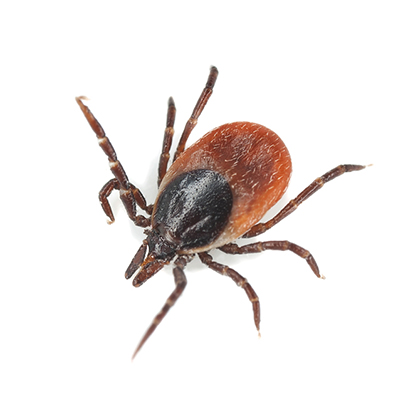Don’t Let Your Guard Down- Ticks Are Still a Danger to Your Horse
Despite the cooler weather, horse owners should still take precautions to guard against tick-borne illness
Lyme disease has become a household name for those living on the East Coast. Though Lyme is the most well-known of the tick borne diseases, anyone who spends time outdoors should be reminded of its year-round dangers. Even during the fall, it’s still necessary to protect both ourselves and our pets from ticks.
“While the nymph-stage ticks are most common during the spring and summer months, adult deer ticks can generally be active whenever the temperature is above freezing,” said internationally known integrative veterinarian and owner of Harmany Equine, Dr. Joyce Harman. “If ticks are active, Lyme carriers are still capable of infecting us and our animals.”
Lyme disease has been recognized for about 40 or 50 years. It is now the most commonly reported tick-borne illness in the US and Europe, and is also found in Asia. The Centers for Disease Control and Prevention (CDC) reports that there have been 20,000 to 30,000 confirmed human cases each year since 2002. The actual numbers are likely much higher as many cases go unreported. 96 percent of those cases are concentrated in about 15 states, mostly on the east coast from Virginia north. However, it can be found almost everywhere, so have your vet consider Lyme as part of any rule-out list.
“Don’t let your guard down just because the temperatures are cooling off,” warns Dr. Harman. “Prevention is key where Lyme is concerned, especially if you live on the east coast.”
Curious about how best to keep ticks off your horses? Guinea hens are effective at removing ticks from the environment. Feeding garlic or apple cider vinegar can also be helpful. Most exciting is a new non-toxic topical spray, called TicksOff that prevents ticks from adhering to the hair.
If your horse has already been affected by Lyme, check out this webinar to learn about different holistic treatment options. You can also browse a selection of products recommended by Dr. Harman for the treatment of Lyme here.
ABOUT JOYCE HARMAN
Dr. Joyce Harman opened Harmany Equine Clinic, Ltd in1990, bringing holistic healing to horses from all walks of life, backyard retirees to Olympic competitors. Over the years, Dr. Joyce Harman has observed and adapted to the changing needs the industry. Twenty-plus years ago, no one had heard of Lyme disease or Insulin Resistance, yet today that makes up a large part of her clinical practice.
In 2001, she wrote the first paper in a peer-reviewed journal about the possibility that horses have insulin resistance (IR), and now it’s part of our everyday conversation. In 2004, she published the first comprehensive book on English saddle fitting since the 1800’s, with the western version of the book following in 2006. To this date, these books are the only books written by an author who is independent from a saddle company, which brings unbiased information to the horse world.











